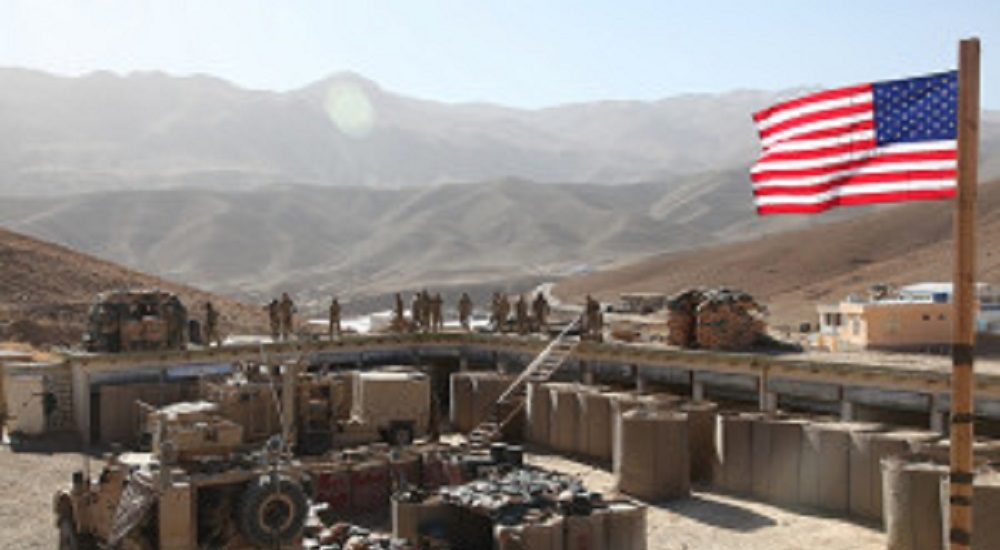The Cost of Trump’s Isolationism Continues to Rise
Those who still support President Trump’s re-election repeatedly insist to the rest of us that “the tweets” are less important than his actual policies. Recent events, however, have badly undermined that argument in two ways: the effect of Trump’s tweets on policy and the danger of the policies themselves.
For the first, we bring back Trump’s promise via Twitter for a full military withdrawal from Afghanistan “by Christmas.” While Americans tried to determine whether we should take Trump literally, the Taliban took him seriously. They responded by pulling the trigger on a massive assault against Helmand province (Washington Post), in violation of the recent “peace” agreement.
The multiday assault in several areas near Lashkar Gah, the provincial capital, was partly quelled by Afghan forces Tuesday with support from U.S. airstrikes, but thousands of families were forced to flee the surrounding areas, highways were blocked, and some Taliban fighters were reported Wednesday to still be advancing into the city.
Perhaps Trump didn’t notice, given that the Taliban signed up for his re-election campaign last week (CBS News).
Another senior Taliban leader told CBS News, “We hope he will win the election and wind up U.S. military presence in Afghanistan.”
So how did the Trump Administration respond to the attack? They pleaded with the Taliban to stop (WaPo).
U.S. officials appealed to the Taliban last week to stop, then met with its leaders in Doha to try to salvage the deal they spent 18 months negotiating.
For the uninitiated, “appealed to” is a euphemism for “begged.” In the end, Trump officials even went back to Obama-era language in a desperate attempt to make defeat look like victory (Reuters).
The U.S. special envoy to Afghanistan said on Thursday he had struck an agreement with the insurgent Taliban to “re-set” their commitments under a troop withdrawal deal and reduce the number of casualties in the country, which has seen heavy fighting in southern Helmand province.
This week, the Taliban launched a major offensive in Helmand, attempting to take the provincial capital and ensuing fighting had displaced thousands of civilians.
U.S. envoy Zalmay Khalilzad said on Twitter that he and General Scott Miller, the commander of U.S. forces in Afghanistan, had held several meetings with the Taliban.
“We agreed to re-set actions by strictly adhering to implementation of all elements of the U.S.-Taliban Agreement and all commitments made,” he said. “At present too many Afghans are dying. With the re-set, we expect that number to drop significantly.”
There was no demand for the Taliban to give us the territory seized in the offensive. That wasn’t part of the “re-set” – a term Trump is still using as an epithet for his predecessor. I guess there are resets, and there are re-sets.
Meanwhile, Deash (also known as ISIS) – which Trump still claims is “totally destroyed” – is on the rise in Africa (WaPo).
Days later, a different band of Islamist gunmen rampaged through a famous wildlife park for giraffes in Koure, Niger, just 35 miles from the country’s capital. Firing from motorbikes, they killed eight people, including six French humanitarian workers.
The two attacks on opposite sides of Africa are among the scores of violent episodes to shake the continent in what experts are calling a breakout year for extremist groups affiliated with al-Qaeda or the Islamic State. Less than two years after the fall of the Islamic State’s self-declared caliphate in Syria and Iraq, the terrorist group is attempting a comeback in Africa, with far-reaching implications for a region already beset by poverty, corruption and the novel coronavirus.
…
The rise in violence comes as the Trump administration moves to slash U.S. troop deployments and threatens to curtail support for local governments on the front lines of the battle against Islamist militants. The White House is considering steeper cutbacks in U.S. military forces in Africa, despite warnings from some analysts that the reductions could further hamper efforts to check the extremists’ advance.
In other words, as our enemies around the world make gains, Donald Trump retreats – in the hope that he can claim he’s “ended” wars before the American people realize he’s actually losing them.
If James Hohmann is any indication, the ruse isn’t working. This was his commentary in this “Big Idea” Podcast for the WaPo.
So many of us have lost dear friends in Afghanistan. I think often of a high school classmate who was killed in action. Many of my friends have never been the same since they came home. So it’s extraordinarily painful – agonizing even – to watch America lose her longest war this way.
Those of us who opposed Donald Trump from the start warned about the dangers of his isolationism. We are seeing the cost of it now, a cost that rises every day. I would say this is “more important than the tweets” – and it is – but as can be seen, the policy, its effects, and “the tweets” are intertwined.
Regardless, Donald Trump’s foreign policy is dangerous to the American people, America’s interests, and America’s allies – period.


